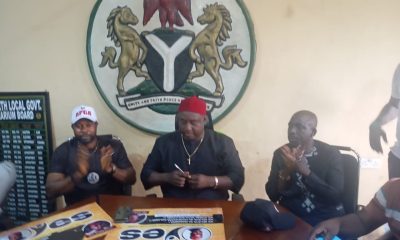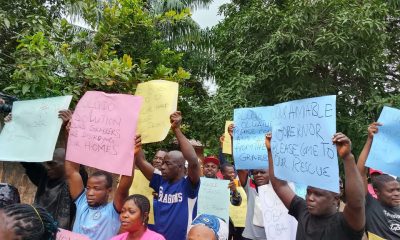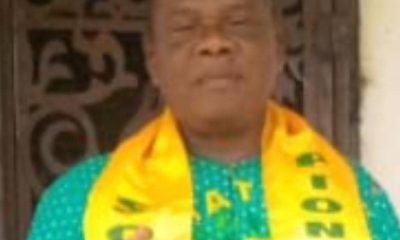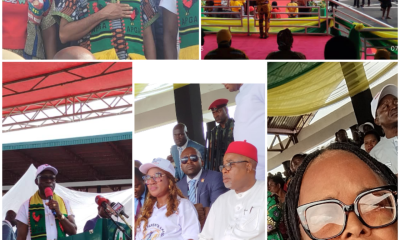POLITICS
Reasons For Our Endorsement Of Soludo For A Second Term – Sani, Hausa Leader
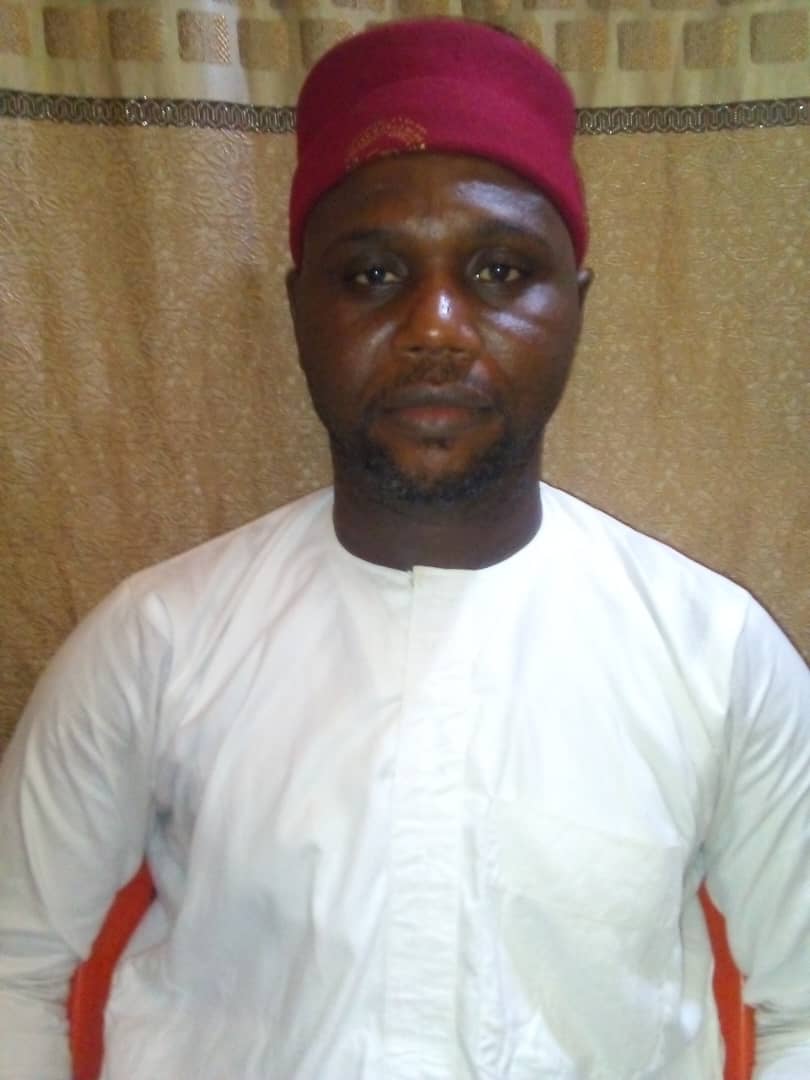
-
Says Nnamdi Kanu Has Constitutional Right To Agitate For Self Determination
By Chuks Eke
Leaders of the Arewa community, Amawbia near Awka capital territory in Awka South Local Government Area of Anambra state, have given some reasons for their recent endorsement of Governor Chukwuma Soludo for a second term in office.
They explained that they were impressed by Soludo’s transformative agenda, particularly in the areas of infrastructural, educational, and medical facilities.
Sarkin Hausawa of Amawbia, Alhaji Mahmud Sani who disclosed this on Tuesday while speaking to newsmen, said for Soludo to have completed the gigantic new Government House and Lodge which was initiated by his past predecessors, maintained peace between the Arewa people and their host Amawbia community and at the same time embarked on massive road projects were enough evidence for them to support his second term bid.
Flanked by the Secretary of Arewa community, Salihu Jobbi, and others, Sani also mentioned the Ekwulobia flyover, Awka township stadium, among others, as evidence of his transformative agenda and responsible governance.
He, however, appealed to Soludo to map out a portion of land in Amawbia or within the Awka cspitsl territory where food stuff coming down from the north to Anambra state would be offloaded for easy distribution to other parts of the state, as according to him a situation where food stuff from Arewa are offloaded in Asaba, Delta state, before coming down to Awka is the major reason for the present high cost of food stuff in Anambra state.
“We are supporting Soludo to do what he has been doing. All we are requesting him to do for us is to map out a piece of land where we will be offloading all the food items brought into Amawbia with heavy-duty trucks from the north.
“Presently, all the items are being offloaded in Asaba, Delta state, and by the time we spend some money to transport ourselves from Amawbia to Asaba and back with those items, their costs will rise”.
“So, if the governor can map out a piece of land here in Amawbia where those items will be offloaded when they come down from the north, then the prices of these items will come down”, said Sani.
On his ability to control his Hausa kinsmen resident in Amawbia in terms of behavior and insecurity, Alhaji Sani declared: “We, the Hausa leaders here, have introduced what we designed as a community membership form to be filled by every Hausa man for proper identification purposes”.
“The community membership form, when completed, is expected to assist us in identifying who is who among us here, including where everyone can be located and full personal data of our kinsmen in Amawbia.
“For now, whenever any Hausa man comes in from anywhere to stay with us here, we usually ask him some questions concerning why he came, where he came from, who came to stay with and what his business, handwork, or profession is”.
“Even if you are a military man, policeman, or civil servant transferred from the north down to Amawbia, you will identify with us so that we will know that you are here with us in case of any problem”.
“Apart from serving as a means of security control and proper identification, the membership form will also enable us to stay together with our brothers from different parts of the northern states, local government areas, communities, and even villages.
“ Once we identify any body as a bad person or a security threat, we don’t waste time in sending sucha person away or handing him over to law enforcement agencies because we are conscious of our image”.
Meanwhile, the Sarkin Hausawa of Amawbia community in Awka South Local Government Area of Anambra state, Alhaji Mahmud Sani, has categorically stated that the leader of the Indigenous People of Biafra, IPOB, Nnamdi Kanu, has a constitutional right to agitate for self-determination of any kind.
He said detaining and prosecuting him for self-determination on grounds of his agitation amounts to a breach of his fundamental rights as guaranteed under the constitution, unless he applied any form of violence in doing so.
Sain, who spoke to newsmen at Amawbia, near Awka Capital Territory, on Thursday, however, stated that one thing is for him to agitate for self-determination, but another thing is for his entire Southeast people to either agree with him and give him the support or not.
According to Alhaji Sani, “there is nothing wrong constitutionally for anyone to agitate for self-determination, but it is left for his fellow Southeasterners to either support him or not because my observation is that the problem he is encountering in the process is that some of his fellow Ndigbo are not with him”.
“As it is now, Sani continued, since his case is already before the court, let the court look at it holistically and decide his fate. I am also of the opinion that all the people from Southeast should go to Abuja and negotiate on his behalf to secure” his freedom”.
On his ability to control his Hausa kinsmen resident in Amawbia in terms of behavior and insecurity, Alhaji Sani declared: “We, the Hausa leaders here, have introduced what we designed as a community membership form to be filled by every Hausa man for proper identification purposes”.
“The community membership form, when completed, is expected to assist us in identifying who is who among us here, including where everyone can be located and full personal data of our kinsmen in Amawbia.
“For now, whenever any Hausa man comes in from anywhere to stay with us here, we usually ask him some questions concerning why he came, where he came from, who he came to stay with, and what his business, handwork, or profession is”.
“Even if you are a military man, policeman or civil servant transferred from the north down to Amawbia, you will identify with us so that we will know that you are here with us in case of any problem”. To
“Apart from serving as a means of security control and proper identification, the membership form will also enable us to stay together with our brothers from different parts of the northern states, local government areas, communities, and even villages. Once we identify any body as a bad person or a security threat, we don’t waste time in sending such a person away or handing him over to law enforcement agencies because we are conscious of our image”.
-
CRIME4 years ago
PSC Dismisses DCP Abba Kyari, To Be Prosecuted Over Alleged $1.1m Fraud
-
FEATURED4 years ago
2022 Will Brighten Possibility Of Osinbajo Presidency, Says TPP
-
FEATURED2 years ago
Buhari’s Ministers, CEOs Should Be Held Accountable Along With Emefiele, Says Timi Frank
-
BUSINESS & ECONOMY2 years ago
Oyedemi Reigns As 2023’s Real Estate Humanitarian Of The Year
-
SPORTS2 years ago
BREAKING: Jürgen Klopp Quits Liverpool As Manager At End Of Season
-
SPORTS2 years ago
Could Liverpool Afford Kylian Mbappe For €200 million? Wages, Transfer Fee
-
ENTERTAINMENT2 years ago
Veteran Nigerian Musician, Basil Akalonu Dies At 72
-
FEATURED2 years ago
Tribunal Judgement: Peter Obi Warns Of Vanishing Electoral Jurisprudence, Heads To Supreme Court
-
BUSINESS & ECONOMY2 years ago
Oyedemi Bags ‘Next Bulls Award’ As BusinessDay Celebrates Top 25 CEOs/ Business Leaders
-
FEATURED4 years ago
2023 Presidency: South East PDP Aspirants Unite, Demand Party Ticket For Zone

